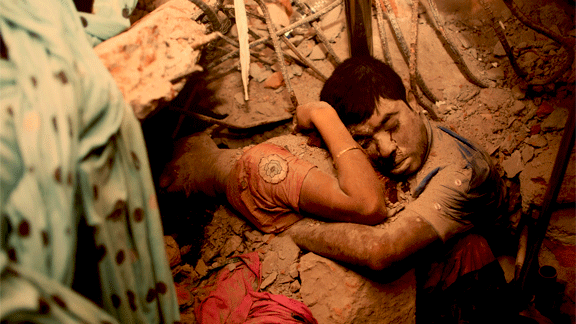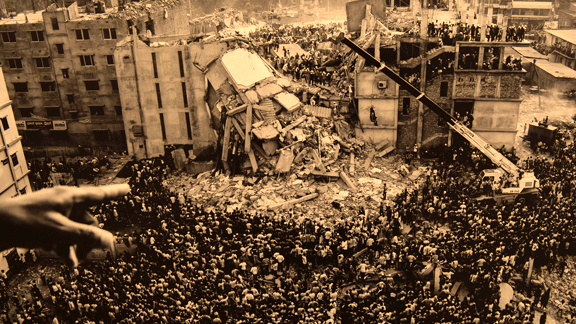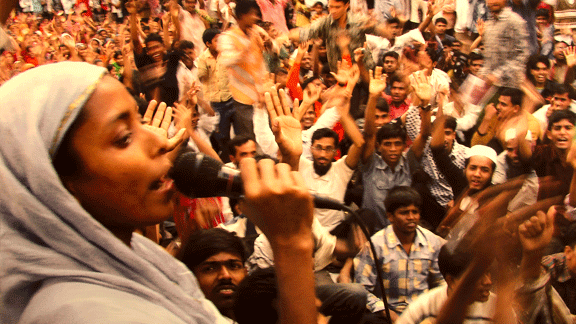Murder not tragedy

“They haunt me, as do hundreds of others, they whisper in my ear, ‘we are not numbers, we are not cheap labour’.”
Murder Not Tragedy is a photo exhibition documenting the bloodiest disaster in the history of the global garment industry.
On 23 April, 2013, giant cracks opened up in the eight story Rana Plaza factory building, north of Dhaka in Bangladesh. The next day, workers were forced into the building by beatings and threats, to produce clothes for global companies including Benetton and Walmart.
At 11:15am, Rana Plaza collapsed.

PHOTO: Rahul Talukdar
Officially, 1127 workers were crushed to death. Most of them were young women.
Murder Not Tragedy documents this appalling crime. Photos show the lives of garment workers, the human toll of the collapse, the rescue, and the ongoing struggle for compensation and justice.

PHOTO: Taslima Akhter
Murder Not Tragedy runs until Sunday 29 March at Steps Gallery, 62 Lygon St Carlton.
The exhibition, part of a larger exhibition shown in Dhaka shortly after the collapse, is presented by the Australia Bangladesh Solidarity Network and Australia Asia Worker Links, and is sponsored by unions including the NTEU, MUA, ETU, CFMEU (Mining and Energy) and AMIEU.